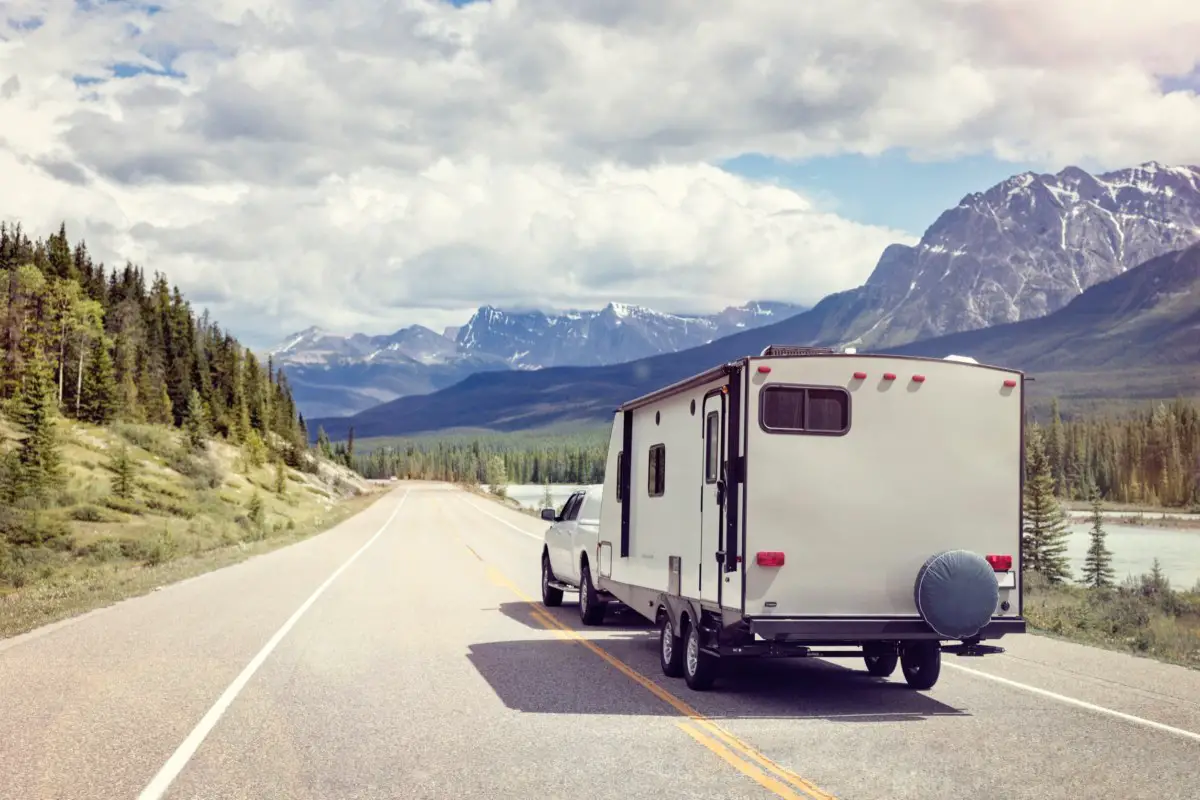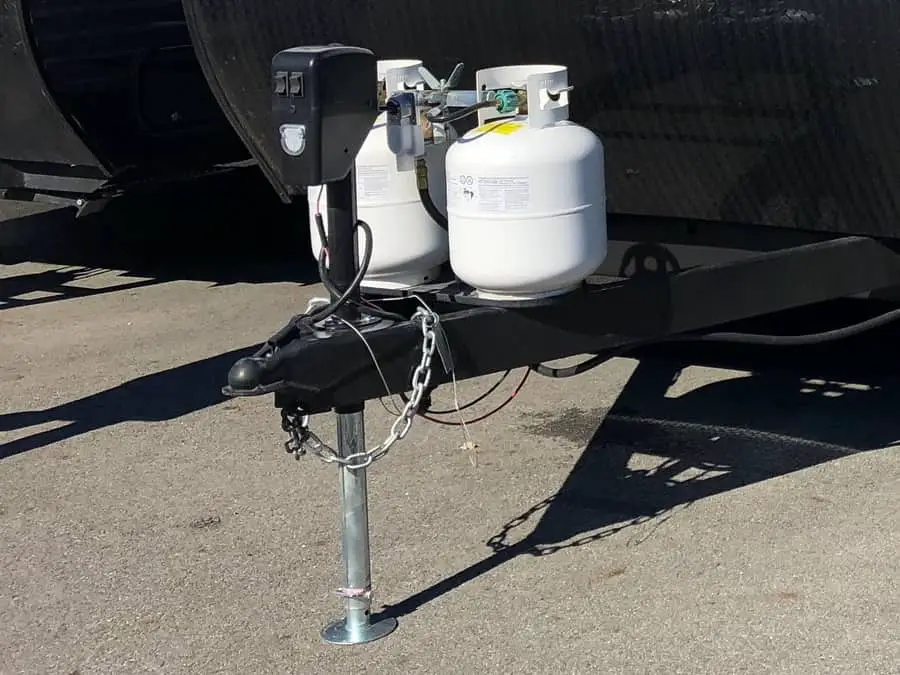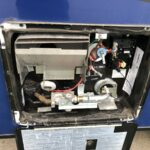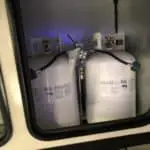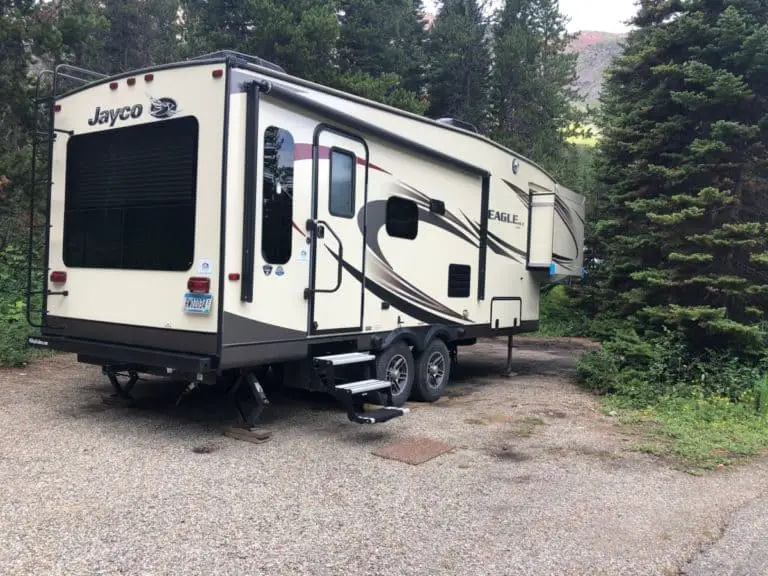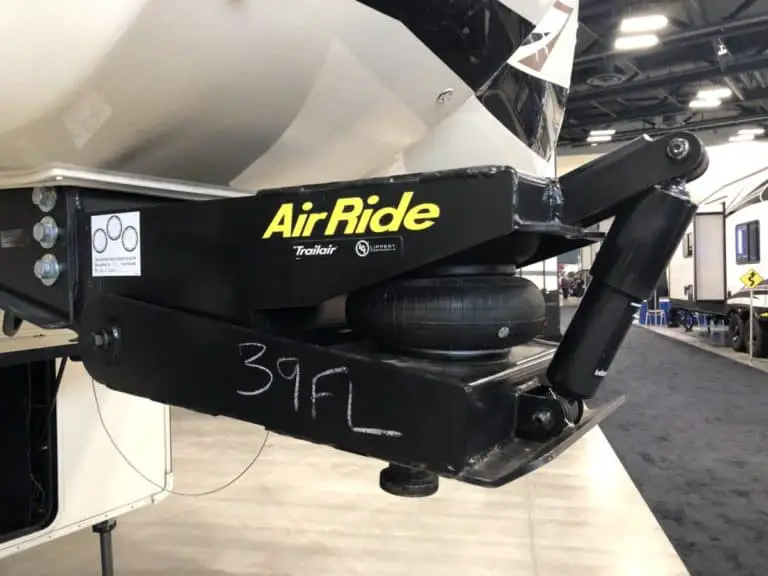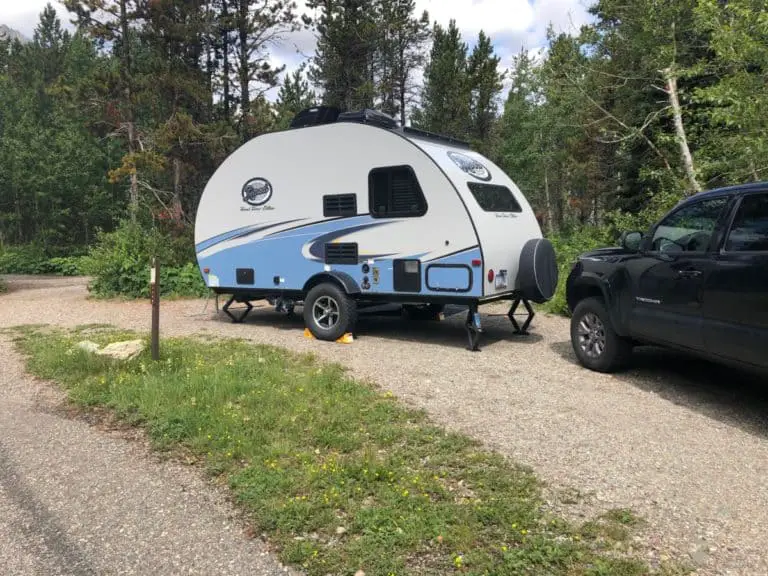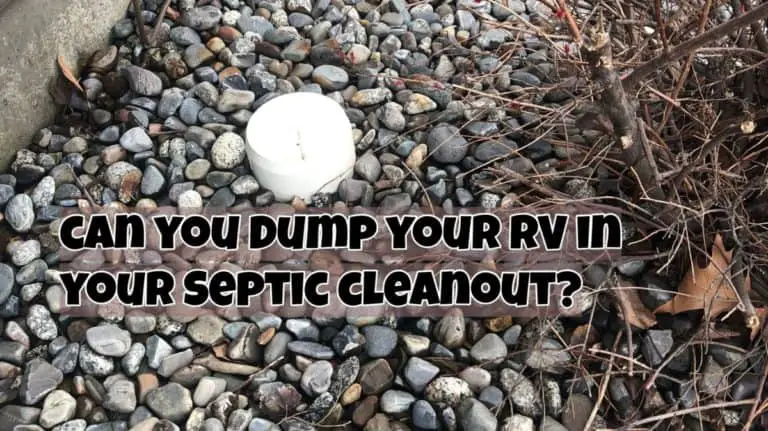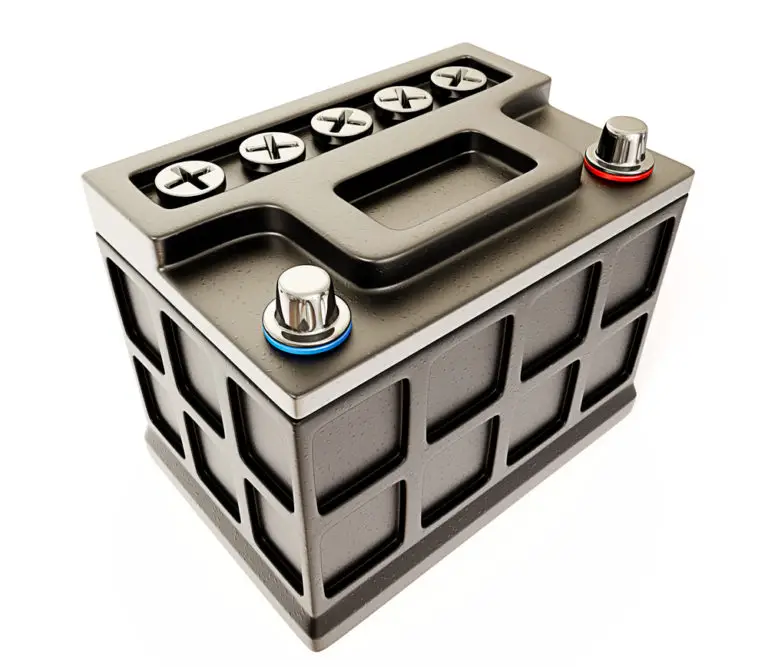4 Ways to Find out How Much Private Party RV Value Really Is?
What is Private Party RV Value and Why it Matters?
Private party RV value refers to the price that an RV would typically sell for in a private party sale between individuals, as opposed to the retail value that a dealer would charge or trade-in value. Understanding private party RV value is essential for both buyers and sellers of RVs.
For buyers, knowing the private party RV value ensures that they are not paying more than what the RV is worth, however as in any type of sale transaction the value of an item is what someone is willing to pay at any given time.
Private party RV value is used as a guide to help buyers negotiate a fair price with the seller. Additionally, it can also help buyers make a more informed decision when comparing different RVs.
For sellers, understanding the private party RV value helps them price their RV competitively and make sure they are getting a fair price. It can also give them an idea of how long it might take to sell their RV, depending on the current market conditions.
By understanding the private party RV value, sellers can also better prepare their RV for sale by making necessary repairs or upgrades that may increase its value.
Thinking of buying a used RV, travel trailer, 5th wheel, popup camper, camper, or any other camping unit? Take our inspection course so you are armed with the knowledge of what to look for when searching for the perfect camper.
This course will benefit you if you are in the new or used market, even NEW campers right off the lot have issues that you need to find prior to delivery.
The good news is that we show you how step by step.
Our course will teach you:
- Roof Inspection
- Slide out Inspection
- Seal Inspection
- Appliance Inspection
- A/C Inspection
- Heat Inspection
- Water Heater Inspection
- and Much More!
Importance of Understanding the difference between RV Private Party vs RV Trade In Value vs Retail RV Value
When considering buying or selling an RV, travel trailer, camper, 5th wheel, or motorhome, it’s important to understand the difference between private party value, trade-in value, and retail value.
Each of these values represents a different aspect of an RV’s worth, and understanding the difference can help you make a more informed decision.
If you are looking for a used travel trailer, this post about what to look for when buying used will greatly help you out.
Private Party RV Value
Private party value refers to the price that an RV would typically sell for in a private sale between individuals, as opposed to the retail value or trade-in value. This value is often considered the most accurate representation of the worth of the RV at that moment, as it depends on the current market conditions.
When you see a camper selling on Craigslist, Facebook, or a local publication, this represents private party value.
Trade-In RV Value
Trade-in value refers to the price that a dealership or other financial institution would offer for an RV, camper, 5th wheel, travel trailer, or other camping unit as a trade-in towards the purchase of a new RV.
Trade-in values are often lower than private party values, as dealerships may need to make repairs and need to make a profit on the sale of the traded-in RV.
Retail RV Value
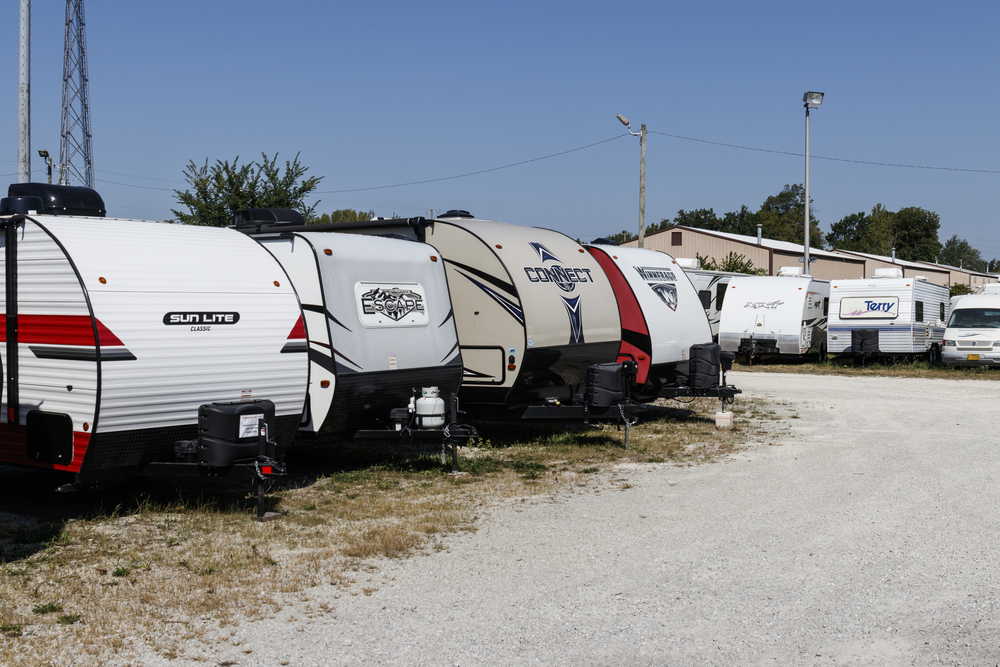
Retail value refers to the price that an RV would typically sell for at a dealership or other retail outlet. Retail selling prices are usually higher than private party values because dealerships and retailers need to make a profit on the sale of the RV.
Most of the time they will go through the camper to verify that all of the appliances, features, and everything is in good working order. They may even make necessary repairs to units before they are resold.
Understanding the difference between these three values can help buyers and sellers make more informed decisions.
For example, a buyer may want to focus on getting a private party value when buying from an individual, but when trading it in at a dealership, they will want to consider the trade-in value as it is easier and takes less time. For a seller, understanding the difference can help them decide whether to sell the RV to an individual or take the trade-in or retail value offer.
Factors that Affect Private Party RV Value
Several factors determine the value on a private party transaction for a trailer, camper, 5th wheel, or RV. They are as follows:
- Age
- Condition
- Popularity
- Mileage
- Upgrades
- Location
Age of the RV
The age of the RV is a significant factor in determining its private party value. Generally speaking, newer RVs will have a higher value than older ones. However, this does not mean that older RVs are not worth buying or selling.
Many older RVs have been well-maintained and can still be in great condition, making them a worthwhile investment. When buying an older RV you will need to consider the age of the appliances, heating, ac system, tires, and other devices that can go bad with age.
Condition of the RV

The condition of the RV is another critical factor that affects private party RV value. RVs that are in excellent condition, with minimal wear and tear, will generally have a higher value than those that are in poor condition.
This can include things like the interior and exterior of the RV, the mechanical condition of the engine, and the condition of appliances and other features.
Seeing that a camper owner waxed the RV, took it in for scheduled maintenance, and repaired small damage shows that they cared for the RV and it usually is in better shape than someone who doesn’t care to keep it cleaned up.
The roof condition on used campers is very important. Here is an in depth article on how to inspect a used RV roof before you purchase it.
Tires can also be expensive, here is a simple guide on how much they cost and when to replace them on used RV’s.
Popularity of the RV’s make and model
The popularity of the RV’s make and model can also play a role in determining private party RV value. RVs that are in high demand and are considered desirable by many buyers will typically have a higher value than those that are less popular.
Keep in mind that this value can also change over time, as certain RV models may become more or less popular over the years.
For example, if you live in an area with younger families, a bunkhouse model will be more desirable due to it sleeping more kids. If you have a couples trailer in an area with lots of families, expect to get less as it will be less desirable.
Mileage on the RV
Mileage on the RV is another consideration when determining private party RV value. RVs with low mileage will generally have a higher value than those with high mileage. This is because RVs with low mileage are likely to have had fewer issues and be in better condition than those with higher mileage.
Although travel trailers, 5th wheels, and campers don’t have a way to track miles, you can determine if a vehicle is high miles based on inspecting tire wear, suspension parts, wheel bearings, and overall condition of the frame and body.
Upgrades and features of the RV
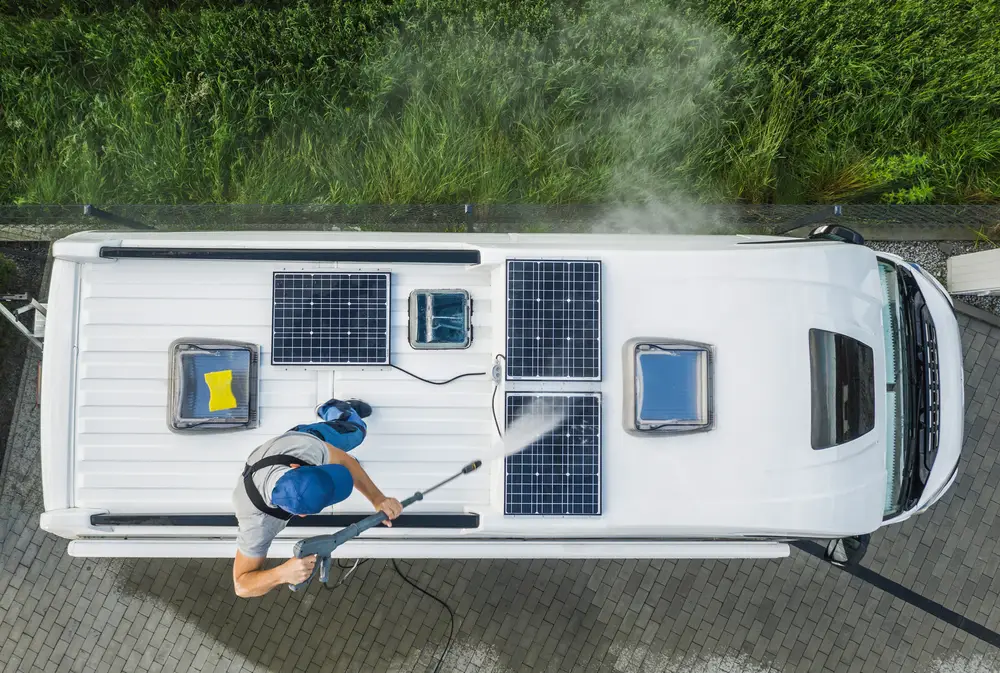
Upgrades and features of the RV also play a role in determining private party RV value. RVs that come equipped with premium features and upgrades, such as solar panels, a generator, and a heat pump or lithium batteries, will generally have a higher value than those without these features. Additionally, RVs that have undergone recent renovations and upgrades may also have a higher value.
Location of the RV
The location of the RV can also impact its private party value. RVs that are located in popular vacation destinations or areas with a high demand for RVs may be more valuable than those in less desirable locations.
Additionally, RVs that are located closer to the dealership where they were originally sold may be more valuable than those that have been shipped across the country.
4 Ways to Determine the Private Party RV Value
There are four main ways to determine private party RV values and they are:
- Research NADA (J.D. Power) Guides Pricing
- Check the PPL Recently Sold List
- Compare the price of Similar RV’s on Facebook Marketplace, RV Trader, Craigslist
- Hire an RV Appraiser
NADA Private Party RV Values
The National Automobile Dealers Association (NADA) (recently acquired by J.D. Power) is a well-respected organization that provides values for a wide range of vehicles, including RVs. The NADA provides private party values for RVs, which can be useful when determining the worth of an RV when buying or selling.
This value is often considered the most accurate representation of the worth of the RV at that moment, as it depends on the current market conditions, but recently has become skewed due to the fast increase and decrease of RV’s due to manufacturers supply and demand.
What Is The NADA for RV’s?
The National Automobile Dealers Association (NADA) is a trade organization that has been providing valuations of automobiles, RVs and boats for over 85 years.
NADA provides market value, wholesale and trade-in value of the vehicles based on data from multiple sources such as vehicle auction sales and personal transactions.
How To Use The NADA to Find the Value of your RV
To use the NADA to find the value of your RV, go to the NADA website, input the make, model, year and condition of your RV, and select any options that your unit may have. The NADA will provide you with a low and high private party value for your RV, which can be useful when determining the worth of an RV when buying or selling.
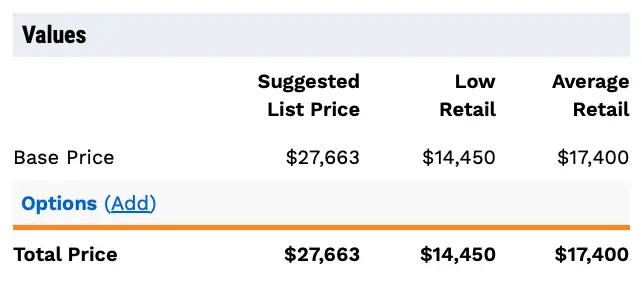
PPL Motorhomes Vehicles Sold List
The PPL Motorhomes Vehicles Sold List is a resource that can be used to determine the price at which similar RVs have recently sold for in the private party market. To use this resource to determine the price to sell your RV for, you can do the following:

- Visit the PPL Motorhomes website and navigate to the “Vehicles Sold List” page.
- Browse through the list of RVs, travel trailers, 5th wheels, toy haulers, and motorhomes that have recently sold, paying attention to the make, model, year, and condition of each RV. Look for RVs that are similar to yours in terms of these characteristics.
- Take note of the sale prices of the RVs that are similar to yours. This will give you an idea of the price range at which similar RVs are currently selling for in the private party market.
- Be aware that The PPL Motorhomes Vehicles Sold List may not provide all the information that can affect the value of your RV, such as location, upgrades, and features. Additionally, the prices listed are for RVs that were sold at the PPL Motorhomes location, not the national market.
- Use this information as a guide to determine a fair price for your RV when selling it. It’s recommended to consult multiple resources and sources before setting a price.
- Keep in mind that the market changes over time and certain seasons can also affect the value of your RV, so be sure to check the Vehicles Sold List regularly and research the current market conditions.
PPL has a lot of data on used Airstreams. If you are looking for a used airstream, read our post on 13 things to look for when buying a used Airstream.
Compare the Price of Similar RV’s for Sale
How To Use RV Trader To Find The Value of your RV in Your Market

RV Trader is an online marketplace for buying and selling RVs, and it can be a useful resource for determining the value of your RV in your local market. To use RV Trader to find the value of your RV, search for RVs similar to yours in terms of make, model, year, and condition. Pay attention to the asking price, and consider the location, features, and mileage of the RVs you find. Compare these prices and features with your own RV to determine its value.
eBay Can Help To Estimate Your RV Value

Another resource you can use to estimate the value of your RV is eBay. eBay allows you to search for RVs similar to yours in terms of make, model, year, and condition. Look for RVs that have recently sold, under the advanced search tab and pay attention to the final selling price. Keep in mind that these prices are not definite values, but it could be a good reference for you to estimate a fair retail price for your RV. Additionally, as with any online marketplaces prices can change depending on location, timing, and other factors.
Facebook Marketplace
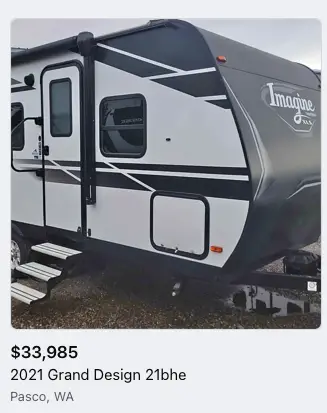
Facebook Marketplace is another resource to see what other similar campers are selling for in your area. Simply go on the marketplace and search your brand, model, or you can search similar models to determine a good price you should be listing yours for.
We like using Facebook Marketplace as you can put a face to the seller to see if they have any negative reviews in the past, can see if they have successfully transacted on large items, and get a general feel before meeting up with someone online.
Craigslist
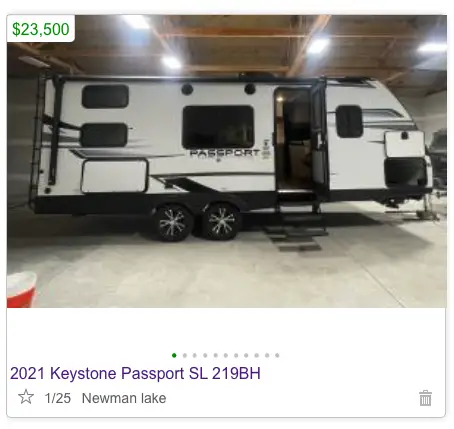
Craigslist is another marketplace you can use to search the value of RV’s for sale. Simply type in the search bar your brand, model, or other features and browse what other sellers are asking.
Keep in mind that just because someone is asking this price, they may not sell for the price. Some sellers are stuck with high payments or underwater on their loan and that may affect their asking price.
Hire an RV Appraisal Service for a Professional Evaluation of your RV
There are RV appraisal services that can come out to your RV, do an inspection and give you a value they believe it will sell for. This method will take the most amount of time as you need to schedule someone to come look at your camper, but it will also cost you money.
I wouldnt recommend hiring someone to do this unless you have a more expensive RV, or there are simply no similar models to compare to using the previous options we have discussed.
Impact of the Economy on a Private Party RV Value
The economy can have a significant impact on private party RV value. Economic downturns can lead to lower RV prices, as fewer people are able to afford to buy RVs during difficult economic times. Additionally, changes in fuel prices can also affect RV values.
When fuel prices are high, RVs that are less fuel-efficient may become less desirable and therefore less valuable. Towing a trailer will also cost more in gas, so when gas prices are high, the interest of camping goes down.
When the economy is down, a popup camper may fit the bill, here is a guide on what to look for in used popup campers.
How economic downturns can affect RV prices
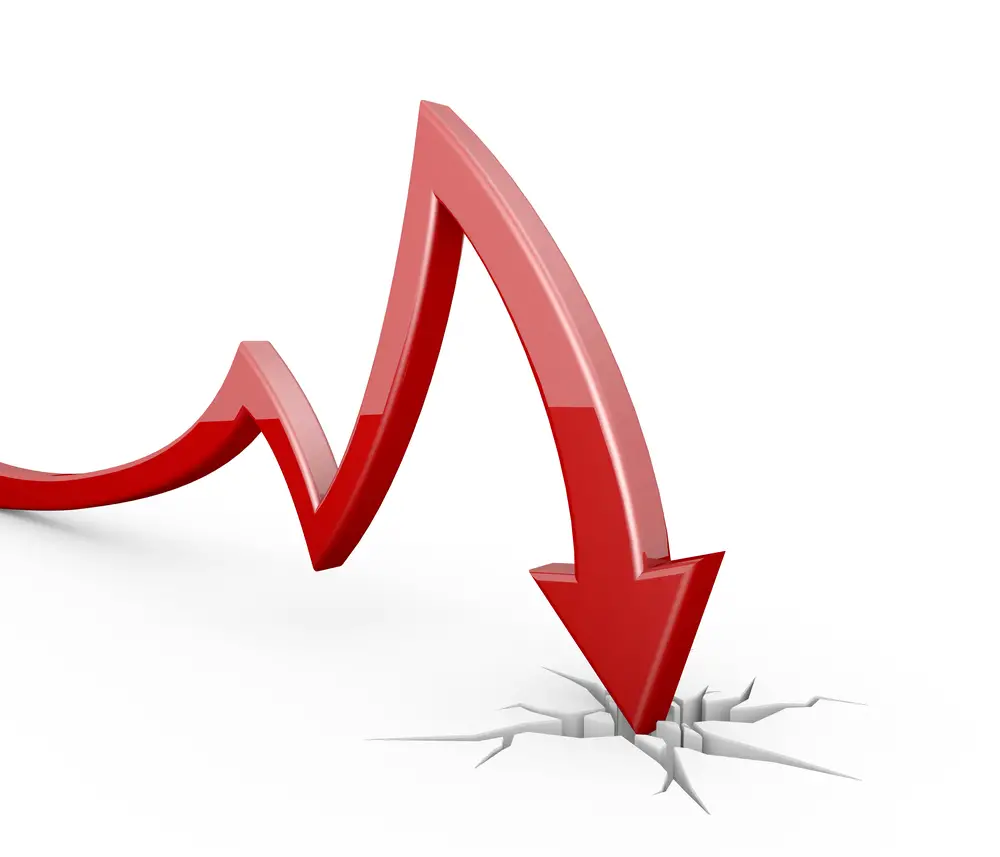
During an economic downturn, the demand for RVs may decrease, which can result in lower RV prices. This is because fewer people are able to afford to buy RVs and pay for fuel when the economy is struggling.
Additionally, during a recession, people may be more likely to keep their current RVs for longer, as they may not be able to afford to upgrade to a newer model.
Class A RV’s have lots of hidden costs you will need to take into account. Here is a guide of all of them.
How changes in fuel prices can affect RV values
Changes in fuel prices can also affect RV values. When fuel prices are high, RVs that are less fuel-efficient may become less desirable and therefore less valuable.
Conversely, when fuel prices are low, more fuel-efficient RVs may become more desirable and therefore more valuable.
Need to know how much owning a travel trailer really costs? Here is a quick read about ownerships and its hidden costs of Travel Trailer ownership.
How interest rates can affect RV financing and private party RV sales
Interest rates can also affect RV financing and private party RV sales. When interest rates are low, it can make it more affordable for people to finance the purchase of an RV. This, in turn, can lead to more people buying RVs, which can increase demand and drive up RV prices.
Conversely, when interest rates are high, it can make it more difficult for people to finance the purchase of an RV, which can decrease demand and drive down RV prices.
Here is an example using an RV loan of $40,000. At 3% interest which was a normal rate for someone with good credit over the past few years your payment would have been $528 per month. Using todays rates in 2023, that same payment would be $623.45 over a 7 year term. This difference in interest makes your RV payment 18% more expensive.
Do RV Values Differ with the Seasons?
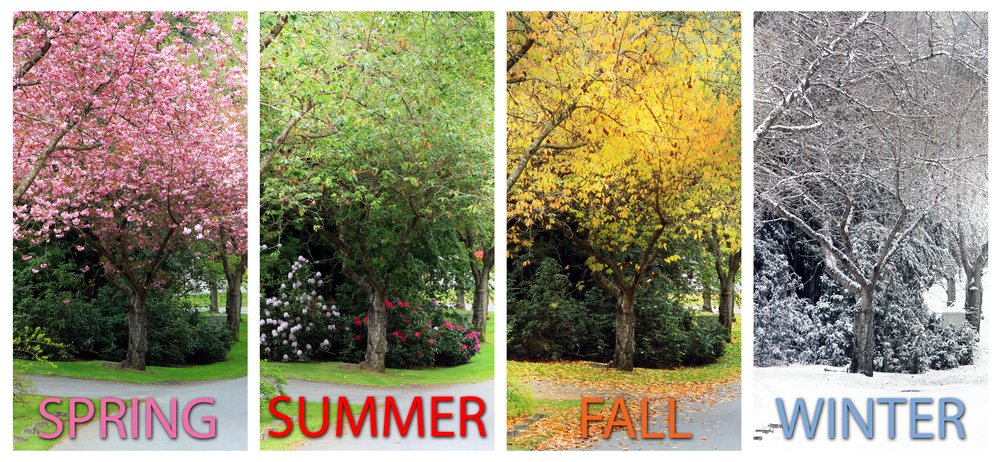
RV values can fluctuate depending on the season. For example, during the summertime when people may be more interested in taking camping trips, the demand for RVs might increase, and the prices may go up.
Conversely, during the wintertime when the camping season is over, demand may decrease, and the prices may drop. Additionally, factors like school start and holiday time may play a role, as people may have more time and resources to travel during those periods.
It’s important to research the market and timing of buying or selling an RV, but also keep in mind that the private party RV value is not only seasonal, but also depends on other factors as described in this article.
How to Increase the value of your used RV
If you’re planning to sell your RV in the private party market, you’ll want to do everything you can to increase its value. Here are a few steps you can take to boost the value of your used RV.
It is important you inspect your camper prior to selling so the potential buyer has less to comment on and use to negotiate the price down. We have an awesome course on inspecting your RV that can help you get the most out of selling your camper.
Fix Any Outstanding Items
The first step in increasing the value of your RV is to fix any outstanding items that need repair. This includes any mechanical issues with the engine or other systems, as well as any cosmetic issues such as leaks, cracks, or damage to the interior or exterior.
By taking care of these issues before listing your RV for sale, you’ll be able to command a higher price from potential buyers. Additionally, it will show that you have taken good care of the RV, which can be a big plus in any buyers mind.
Keep the RV in Top Condition
In addition to fixing any outstanding items, it’s important to keep your RV in top condition overall. This means regular maintenance and cleaning, both inside and outside.
Keeping the RV cleaned, waxed, and well-maintained can help it look its best, which can be a big factor in determining its value. Additionally, keeping up with regular maintenance will ensure that the systems and appliances are working properly, which can be very important to potential buyers.
Have Good Documentation
Having good documentation on your RV is also important when trying to increase its value. This includes things like service records, repair records, and any upgrades or renovations that have been made.
This documentation can help to demonstrate that the RV has been well-maintained and can help to reassure potential buyers that they are getting a good value for their money.
Additionally, having good documentation can help to back up any claims you make about the RV, such as that it has low mileage or has undergone recent repairs or upgrades, which can be important when trying to increase the RV’s value.
By keeping these tips in mind, you’ll be able to increase the value of your used RV. This can make it more appealing to potential buyers, which can ultimately result in a higher sale price.
Additionally, by investing some time and money in repairing, maintaining, and upgrading your RV, you’ll also be able to enjoy it more while it’s still in your possession and it will be less of a headache for a buyer who is looking for reasons not to buy your model.
Selling your RV to a Dealer
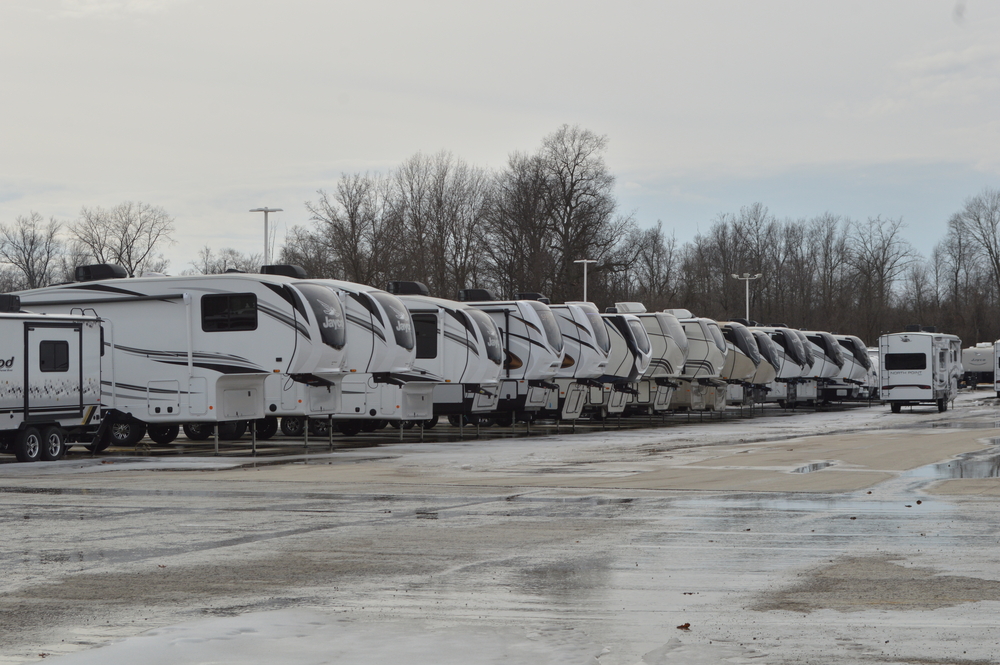
When it comes to selling your RV, one option is to trade it in at a dealership. This can be a convenient option, as it allows you to sell your RV and purchase a new one all in one transaction. However, it’s important to understand that the trade-in value offered by a dealership is typically lower than the retail or private party price for your RV.
Most dealers in todays market will buy your RV even without you wanting to purchase a new model. This is beneficial to users that are just done with camping and want to get out of their RV quickly.
RV Trade In Values and Why they are Lower than RV Retail or Private Party Prices
RV trade-in values are often lower than retail or private party prices for a few reasons. First, dealerships need to make a profit on the sale of the RV, and therefore will often offer a lower price than what they believe the RV is truly worth.
Additionally, dealerships may also factor in the cost of any repairs or renovations that need to be made to the RV before they can resell it. The RV purchase process at a dealer will be the quickest way to get rid of your old recreational vehicle.
6 Benefits to Trading in your RV at a Dealer
- Convenience: Trading in your RV at a dealership is a convenient way to sell your RV and purchase a new one all in one transaction. This can save you time and energy, as you don’t need to go through the process of advertising and showing your RV to potential buyers.
- Faster Sale: Trading in your RV at a dealership allows you to sell your RV much faster than trying to sell it privately. Dealerships have a ready market for used RVs and the process is generally much faster than selling privately.
- Avoiding Costs: Trading in your RV at a dealership allows you to save on the costs of advertising and selling it privately, such as paying for classified ads or hiring a professional to photograph the RV.
- No Haggling: Trading in your RV at a dealership eliminates the need to haggle over the price with potential buyers. Dealerships will typically make a fair offer, and you can negotiate the price just as you would if you were buying a new RV. You can also take a lower trade in value for a lower value on a new RV to save taxes.
- Expertise: Dealerships have the knowledge and experience to provide a more accurate value of your RV and also have knowledge about market trends that can affect the value of your RV that as an individual you might not have. Additionally, they also have the resources to make necessary repairs, upgrades, and certifications on the RV that can increase the value when resale it.
- Taxes: If you live in a sales tax state, the amount a dealer gives you for a trade in value will be deducted from the price and you will not have to pay sales taxes on it. In Washington, if you trade in a $10,000 vehicle that could mean a savings of $900 in taxes.
How do RV Dealers Determine the Trade in Value of your RV
- Age and condition: The dealership will take into account the age and overall condition of your RV. If it is an older model and has signs of wear and tear, the trade-in value will likely be lower. Conversely, if it is a newer model and has been well-maintained, the trade-in value will likely be higher.
- Popularity: The dealership will also consider the popularity of the make and model of your RV. RVs that are in high demand and are considered desirable by many buyers will typically have a higher trade-in value. Additionally, RVs that are considered to be “classic” or “vintage” can also hold a higher value.
- Mileage: Mileage is also a factor that dealerships will take into account, the fewer miles on your RV, the higher trade-in value it will have.
- Upgrades and Features: Upgrades and features of the RV, such as solar panels, inverters, a generator, and lithium batteries, can also increase the trade-in value. Additionally, RVs that have undergone recent renovations and upgrades may also have a higher trade-in value.
- Market conditions: Dealerships will also take into account the current market conditions when determining the trade-in value of your RV. This includes the demand for the make and model of your RV, as well as the overall state of the RV market. They will determine how long they believe it will take to sell and price it accordingly.
- Dealer’s inventory: The dealership will also consider their current inventory and whether your RV fits their needs and stock, how it will help them to balance their inventory and how fast they can sell it. They will also search the zip code to see what types of RV’s are at other dealers to see if there is a gap.
Ultimately, the trade-in value offered by a dealership will be based on a number of different factors, and may be lower than what you could expect to get for your RV if you sold it privately.
However, trading in your RV at a dealership can be a convenient and efficient way to sell your RV, particularly if you’re looking to upgrade to a newer model.
How much does an RV Depreciate?
RVs, like most vehicles, depreciate over time. The rate of depreciation can vary depending on a number of factors, such as the make and model of the RV, its age, and its condition. On average, RVs tend to depreciate at a faster rate than other types of vehicles, such as cars or trucks. This is partly due to the fact that RVs are often used for leisure purposes, which means they are driven less frequently and exposed to more wear and tear in the elements.
According to JD Power, right when you take your new camper, travel trailer, rv, or 5th wheel off the lot they are worth 20% less than you paid. RV’s typically depreciate 30% within the first 3 years of ownership.
One of the biggest factors affecting the rate of depreciation is the age of the RV. New RVs generally depreciate faster than older RVs in their first few years of ownership, after which the rate of depreciation begins to slow down.
This means that if you’re thinking of buying a new RV, you’ll need to consider that it will lose a significant amount of value in the first few years of ownership. On the other hand, older RVs have already undergone most of their depreciation and may hold their value better.
The condition of the RV is another important factor affecting its rate of depreciation. An RV that is well-maintained and in good condition will typically depreciate at a slower rate than one that is not well-maintained or has suffered significant damage.
This is why it’s important to keep your RV in good condition and make any necessary repairs or upgrades in order to keep its value as high as possible.
The type of RV you own also plays a role in depreciation. Luxury RVs or high-end models tend to lose their value faster than the less expensive models, this is due to their size, quality, and expensive price which have a lesser demand. Additionally, the RV market trends also affect the depreciation of your RV, for instance, if there is a decrease in demand for RVs, the depreciation rate would be higher.
In general, it’s safe to expect that your RV will lose value over time. However, by understanding how depreciation works and taking steps to keep your RV in good condition, you can minimize the rate of depreciation and make sure that your RV holds its value as well as possible.
Frequently Asked Questions
How Do I Find The Value Of A Used RV? Use online resources such as NADA, Craigslist, or Facebook Marketplace to research the average private party value and asking price for RVs similar to yours in age, condition and make/model.
Does Renovating An RV Increase Value? Yes, renovating an RV to improve its condition and add desirable features can increase its value.
Is there a Edmunds or Kelley Blue Book (KBB) value guide for RVs? No, both Edmunds and Kelley Blue Book (KBB) do not have online value guides that allow you to research the average private party value for RVs.
Be the first to be notified about FREE tips, hints, coupon codes, and email-exclusive information. All for FREE!

